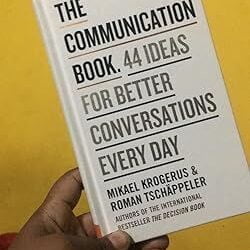In the first article, we explored the basics of ChatGPT, a state-of-the-art language generation model developed by OpenAI, and how to effectively use it for a variety of tasks. However, it’s important to also acknowledge the limitations of this technology. In this second article, we will delve into the limitations of ChatGPT and what to keep in mind when using it.
ChatGPT and it’s limitations
ChatGPT, developed by OpenAI, is a highly sophisticated language model that has the ability to generate human-like text. It has been trained on a massive amount of data and has achieved impressive results in various natural language processing tasks. However, despite its impressive capabilities, it is not perfect and has its limitations. In this article, we will discuss some of the limitations of ChatGPT.
One of the major limitations of ChatGPT is its lack of common sense. Although the model has been trained on a massive amount of data, it still lacks the ability to understand the real world and its complexities. This means that it may struggle to respond accurately to questions or situations that require real-world knowledge or understanding. For example, it may not be able to differentiate between sarcasm or irony and respond seriously to a joke.
Another limitation of ChatGPT is its lack of personal opinions. Since the model has been trained on a large corpus of text, it has no personal opinions or beliefs. It simply generates responses based on the patterns it has learned from the data. This can lead to responses that are repetitive or generic, lacking the unique perspective and creativity of a human.
Another limitation of ChatGPT is its inability to understand context. The model generates responses based on the input it receives, but it does not have the ability to understand the context in which the input was given. This can lead to misunderstandings or irrelevant responses. For example, if someone asks a question about a specific event, ChatGPT may generate a response that is unrelated to the event or the context in which it took place.
Another limitation of ChatGPT is its dependence on the quality of the data it has been trained on. The model is only as good as the data it has been trained on, and if the data contains biases, errors, or inaccuracies, the model may generate responses that reflect those biases. This can lead to the propagation of harmful or incorrect information. Additionally, ChatGPT is not able to learn from its mistakes, so it may continue to generate incorrect responses even after being corrected.
Finally, ChatGPT’s reliance on patterns and statistical models also means that it is vulnerable to adversarial attacks. For example, an attacker could input deliberately misleading or false information into the model, causing it to generate incorrect responses. This is particularly concerning in applications where ChatGPT is used to generate responses that have real-world implications, such as customer service or news reporting.
In conclusion, while ChatGPT has achieved impressive results in natural language processing tasks, it is not without its limitations. The model lacks common sense, personal opinions, and the ability to understand context, and is dependent on the quality of the data it has been trained on. Additionally, it is vulnerable to adversarial attacks. However, as the field of artificial intelligence continues to advance, it is likely that these limitations will be addressed and overcome.
Further reading: What is ChatGPT and how to login into ChatGPT. Detailed guide



















